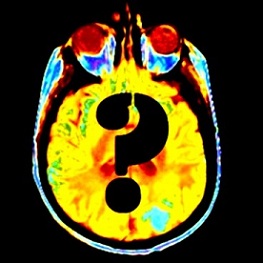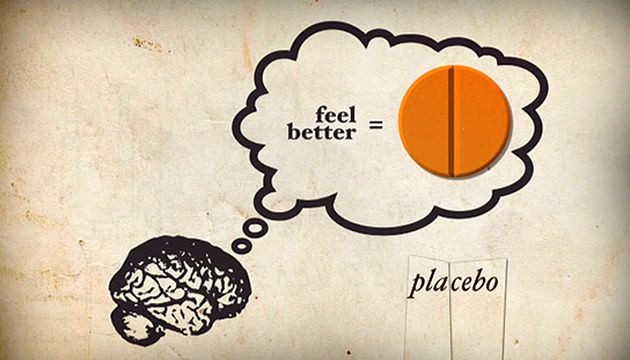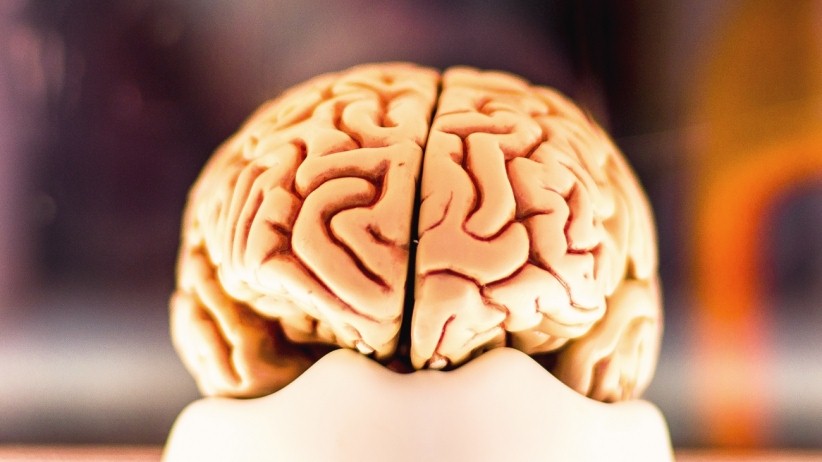|
Kategorie
|
-
-
-
 Psychologon / Rešerše
The two kinds of stories we tell about ourselves
"Our identities and experiences are constantly shifting, and storytelling is how we make sense of it. By taking the disparate pieces of our lives and placing them together into a narrative, we create a unified whole that allows us to understand our lives as coherent — and coherence, psychologists say, is a key source of meaning." Psychologon / Rešerše
The two kinds of stories we tell about ourselves
"Our identities and experiences are constantly shifting, and storytelling is how we make sense of it. By taking the disparate pieces of our lives and placing them together into a narrative, we create a unified whole that allows us to understand our lives as coherent — and coherence, psychologists say, is a key source of meaning."
www.ted.com / 20. 3. 2019
-
-
-
 Psychologon / Rešerše
How brain biases prevent climate action
"We lack the collective will to address climate change because of the way our brains have evolved over the last two million years.
"Humans are very bad at understanding statistical trends and long-term changes,” says political psychologist Conor Seyle, director of research at One Earth Future Foundation, a programme incubator that focuses on fostering peace long-term.
“We have evolved to pay attention to immediate threats. We overestimate threats that are less likely but easier to remember, like terrorism, and underestimate more complex threats, like climate change.”" Psychologon / Rešerše
How brain biases prevent climate action
"We lack the collective will to address climate change because of the way our brains have evolved over the last two million years.
"Humans are very bad at understanding statistical trends and long-term changes,” says political psychologist Conor Seyle, director of research at One Earth Future Foundation, a programme incubator that focuses on fostering peace long-term.
“We have evolved to pay attention to immediate threats. We overestimate threats that are less likely but easier to remember, like terrorism, and underestimate more complex threats, like climate change.”"
BBC / 9. 3. 2019
-
-
-
 Psychologon / Rešerše
Martin Pistorius How my mind came back to life — and no one knew
Imagine being unable to say, "I am hungry," "I am in pain," "thank you," or "I love you,” — losing your ability to communicate, being trapped inside your body, surrounded by people yet utterly alone. For 13 long years, that was Martin Pistorius’s reality. After contracting a brain infection at the age of twelve, Pistorius lost his ability to control his movements and to speak, and eventually he failed every test for mental awareness. He had become a ghost. But then a strange thing started to happen — his mind began to knit itself back together. In this moving talk, Pistorius tells how he freed himself from a life locked inside his own body. Psychologon / Rešerše
Martin Pistorius How my mind came back to life — and no one knew
Imagine being unable to say, "I am hungry," "I am in pain," "thank you," or "I love you,” — losing your ability to communicate, being trapped inside your body, surrounded by people yet utterly alone. For 13 long years, that was Martin Pistorius’s reality. After contracting a brain infection at the age of twelve, Pistorius lost his ability to control his movements and to speak, and eventually he failed every test for mental awareness. He had become a ghost. But then a strange thing started to happen — his mind began to knit itself back together. In this moving talk, Pistorius tells how he freed himself from a life locked inside his own body.
www.ted.com / 29. 12. 2018
-
-
-
 Psychologon / Psychologon
Keď sa pamäť s nami hrá
Ľudská pamäť pracuje relatívne presne. Spoliehame sa na ňu pri každodenných bežných činnostiach. Problém nastáva, keď si s nami začne zahrávať. Niečo vynechá, zaplní prázdne miesta a uložené spomienky si upraví. Je ale možné, aby dokázala vytvoriť úplne novú spomienku na udalosť, ktorá sa nikdy nestala? Psychologon / Psychologon
Keď sa pamäť s nami hrá
Ľudská pamäť pracuje relatívne presne. Spoliehame sa na ňu pri každodenných bežných činnostiach. Problém nastáva, keď si s nami začne zahrávať. Niečo vynechá, zaplní prázdne miesta a uložené spomienky si upraví. Je ale možné, aby dokázala vytvoriť úplne novú spomienku na udalosť, ktorá sa nikdy nestala?
Mária Chocholáčková / 30. 11. 2018
-
-
-
 Psychologon / Psychologon
Cognitive Neuroscience of Social Behavior
Explanations of social behavior widely vary depending on the point of view of given field. The current article reveals how cognitive neuroscience could help us understand social behavior of humans. The functional magnetic resonance imaging (fMRI) was used in numerous studies to see which parts of the brain are active during social behavior. Social cooperation is based on the ability to sacrifice one´s current resources in order to gain in the future and research shows that it is related to tissues linked to rewarding behavior. Therefore, it is hypothesized that cooperative behavior is labeled as rewarding which allows us to overcome our selfish impulses. Research also suggests that our decisions are influenced by both, emotions and cognition and that socially induced pain is similar to a physical pain. Psychologon / Psychologon
Cognitive Neuroscience of Social Behavior
Explanations of social behavior widely vary depending on the point of view of given field. The current article reveals how cognitive neuroscience could help us understand social behavior of humans. The functional magnetic resonance imaging (fMRI) was used in numerous studies to see which parts of the brain are active during social behavior. Social cooperation is based on the ability to sacrifice one´s current resources in order to gain in the future and research shows that it is related to tissues linked to rewarding behavior. Therefore, it is hypothesized that cooperative behavior is labeled as rewarding which allows us to overcome our selfish impulses. Research also suggests that our decisions are influenced by both, emotions and cognition and that socially induced pain is similar to a physical pain.
Monika Kupcová / 2. 6. 2016
-
-
-
 Psychologon / Rešerše
The people who cannot imagine
Close your eyes and visualise the face of the person you love the most. The colour of their eyes, the texture of their hair, the detail of their skin. Can you imagine it? Philip can’t. Psychologon / Rešerše
The people who cannot imagine
Close your eyes and visualise the face of the person you love the most. The colour of their eyes, the texture of their hair, the detail of their skin. Can you imagine it? Philip can’t.
BBC / 1. 6. 2016
-
-
-
 Psychologon / Psychologon
Placebo efekt: Jak lidská mysl promění cukr v lék
Pro mnohé je fascinujícím důkazem o samoléčebných schopnostech lidské mysli. Jiní odborníci považují jeho účinky za diskutabilní. Placebo efekt výrazně ovlivňuje nynější psychologii i medicínu. Lidstvo přitom jeho působení zná pravděpodobně od pravěku. Již evangelista Marek v Bibli píše „Věř a tvá víra tě uzdraví.“ Současné výzkumy ukazují nejen nové souvislosti fungování a překvapivé působení placeba u některých chorob, ale také skrytá rizika. Otázkou navíc zůstává, zda možné výsledky ospravedlňují eticky problematické zastírání pravdy pacientům. Psychologon / Psychologon
Placebo efekt: Jak lidská mysl promění cukr v lék
Pro mnohé je fascinujícím důkazem o samoléčebných schopnostech lidské mysli. Jiní odborníci považují jeho účinky za diskutabilní. Placebo efekt výrazně ovlivňuje nynější psychologii i medicínu. Lidstvo přitom jeho působení zná pravděpodobně od pravěku. Již evangelista Marek v Bibli píše „Věř a tvá víra tě uzdraví.“ Současné výzkumy ukazují nejen nové souvislosti fungování a překvapivé působení placeba u některých chorob, ale také skrytá rizika. Otázkou navíc zůstává, zda možné výsledky ospravedlňují eticky problematické zastírání pravdy pacientům.
Petr Gal / 18. 4. 2016
-
-
-
 Psychologon / Psychologon
Kognitívne omyly alebo keď zlyhá ľudský faktor
Existujú situácie, kedy nás sklame naša pamäť – zvyčajne dobre fungujúca a spoľahlivá. Ako ďaleko môže takéto zlyhanie zájsť? Napríklad aj k tomu, že rodič zabudne svoje dieťa v aute. Nemusí to byť znakom nedostatočnej starostlivosti, môže ísť o kognitívne zlyhanie. Psychologon / Psychologon
Kognitívne omyly alebo keď zlyhá ľudský faktor
Existujú situácie, kedy nás sklame naša pamäť – zvyčajne dobre fungujúca a spoľahlivá. Ako ďaleko môže takéto zlyhanie zájsť? Napríklad aj k tomu, že rodič zabudne svoje dieťa v aute. Nemusí to byť znakom nedostatočnej starostlivosti, môže ísť o kognitívne zlyhanie.
Júlia Tkáčová / 10. 3. 2016
-
-
-
 Psychologon / Rešerše
Jocelyne Bloch: The brain may be able to repair itself — with help
Through treating everything from strokes to car accident traumas, neurosurgeon Jocelyne Bloch knows the brain's inability to repair itself all too well. But now, she suggests, she and her colleagues may have found the key to neural repair: Doublecortin-positive cells. Similar to stem cells, they are extremely adaptable and, when extracted from a brain, cultured and then re-injected in a lesioned area of the same brain, they can help repair and rebuild it. "With a little help," Bloch says, "the brain may be able to help itself." Psychologon / Rešerše
Jocelyne Bloch: The brain may be able to repair itself — with help
Through treating everything from strokes to car accident traumas, neurosurgeon Jocelyne Bloch knows the brain's inability to repair itself all too well. But now, she suggests, she and her colleagues may have found the key to neural repair: Doublecortin-positive cells. Similar to stem cells, they are extremely adaptable and, when extracted from a brain, cultured and then re-injected in a lesioned area of the same brain, they can help repair and rebuild it. "With a little help," Bloch says, "the brain may be able to help itself."
www.ted.com / 22. 2. 2016
-
-
-
 Psychologon / Rešerše
Porazí umělé inteligence rakovinu?
Umělé inteligence nejsou důvodem k obavám, ale nabízejí pomocnou ruku při řešení palčivých problémů dnešní doby. Lékaři vyvíjejí umělou inteligenci, která analyzuje miliony poznámek lékařů z léčby rakoviny. Psychologon / Rešerše
Porazí umělé inteligence rakovinu?
Umělé inteligence nejsou důvodem k obavám, ale nabízejí pomocnou ruku při řešení palčivých problémů dnešní doby. Lékaři vyvíjejí umělou inteligenci, která analyzuje miliony poznámek lékařů z léčby rakoviny.
www.osel.cz / 22. 2. 2016
-
-
-
 Psychologon / Psychologon
Umělá inteligence a co má společného s psychologií
Tato otázka se vlastně zdá velmi jednoduchá, protože psychologie a inteligence jsou prakticky příbuzné pojmy. Ale není umělá inteligence něco úplně jiného? Není to jen hraní si s počítačovými programy a sestavování algoritmů, kterým obyčejný smrtelník, IT studiem nepolíbený, nemůže nikdy porozumět? Pojďme se na to podívat podrobněji. Článek se zabývá otázkou propojení psychologie s výpočetní technikou a především umělou inteligencí. Podává příklady paralel mezi oběma odvětvími, jejich vzájemného propojení, a dále klade otázky ohledně etické korektnosti výzkumu umělé inteligence a možných směrů jejího vývoje, přičemž čerpá jak z odborných publikací, tak jejich kritik z řad vědců i široké veřejnosti. A po jeho dočtení třeba budete vědět, zda je umělá inteligence něco pro Vás. Psychologon / Psychologon
Umělá inteligence a co má společného s psychologií
Tato otázka se vlastně zdá velmi jednoduchá, protože psychologie a inteligence jsou prakticky příbuzné pojmy. Ale není umělá inteligence něco úplně jiného? Není to jen hraní si s počítačovými programy a sestavování algoritmů, kterým obyčejný smrtelník, IT studiem nepolíbený, nemůže nikdy porozumět? Pojďme se na to podívat podrobněji. Článek se zabývá otázkou propojení psychologie s výpočetní technikou a především umělou inteligencí. Podává příklady paralel mezi oběma odvětvími, jejich vzájemného propojení, a dále klade otázky ohledně etické korektnosti výzkumu umělé inteligence a možných směrů jejího vývoje, přičemž čerpá jak z odborných publikací, tak jejich kritik z řad vědců i široké veřejnosti. A po jeho dočtení třeba budete vědět, zda je umělá inteligence něco pro Vás.
Psychologon / 18. 2. 2016
|
|